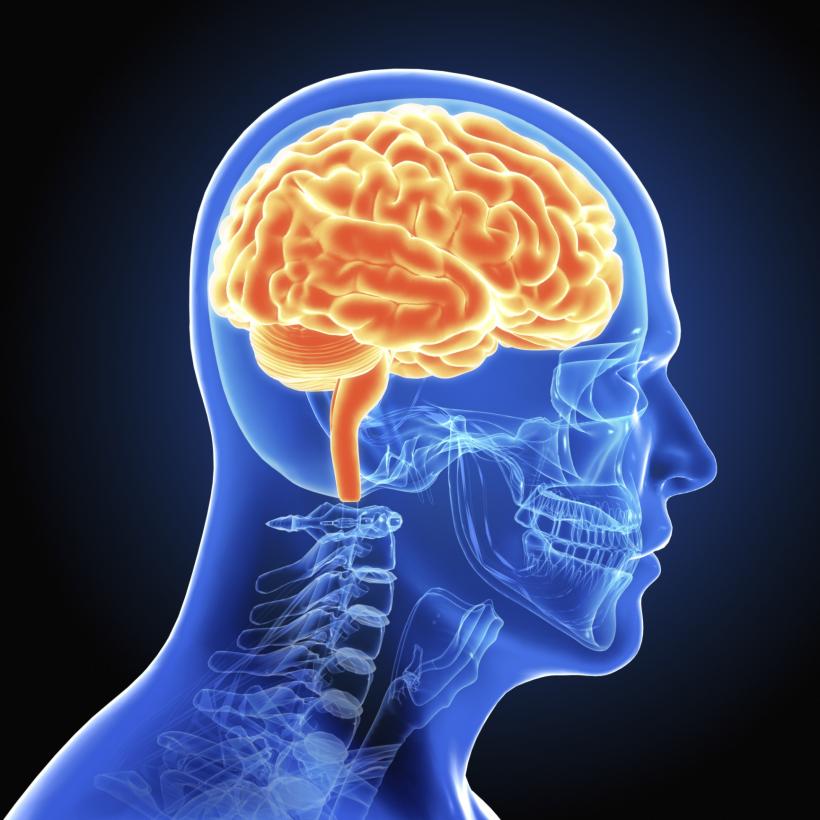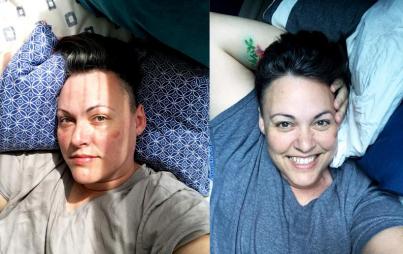
Credit: ThinkStock
Venus and Mars have struck again, this time using Michelle Obama as their clever conduit.
At the recent U.S. Africa Leaders Summit, the first lady flexed her feminist humor insisting that women " . . . can’t waste the spotlight. Time is short. Change is needed. And women are smarter than men."
The summit, which is the largest event any U.S. President has ever held with African heads of state and government, is dedicated to "Investing in the Next Generation." As controversy around gender relations continue to rage on—with everything from wage gaps to reproductive rights dominating the news—it feels decidedly apropos that the First Lady would quip about women snatching up the red-hot spotlight.
While Michelle the mighty was undoubtedly kidding, it got us wondering—yet again—about male and female brains. While we'll be the first bitches on the block to holler about women being, well, wonderful, we're not drinking the Kool-Aid deep enough to believe we're inherently smarter.
But a recent study by radiologists at the University of Pennsylvania suggests that there are very tangible differences in the make-up of our brains.
Male Brains Are From Mars, Female Brains Are From Venus
Study author Dr. Ruben Gur and her team traced the brain scans of more than 1,000 men, women and children and what they discovered—despite our well-meaning attempts to bridge, dismiss or counter "genderized behavior"—is that male and female brains are "wired" quite differently, ostensibly offering the genders very different skills sets.
Gur's study revealed that male brains appear to be wired front to back with far fewer connections bridging the two hemispheres; women’s brains on the other hand have pathways that traverse back and forth between the left and right sides.
While men boast stronger connections within cerebral hemispheres, women possess stronger connections between hemispheres. In short? Our brains illustrate fundamental strengths and weaknesses that in turn have profoundly effected the way we conceive of gender: The majority of men's motor skills are stronger (controlled by their strong connections in their cerebellum) while women's minds offer a more deft combination of analytical and intuitive thinking.
Women scored highly on multitasking, easily toggling from one idea or duty to the next with ease. They also tested better in word and face memory, as well as social cognition, which focuses on how humans store, process and use the information people interact with.
Nature vs. Nurture
Pathways or not, Professor Heidi Johansen-Berg, a UK expert in neuroscience at the University of Oxford, insists theories are still just theories . . . and new experiences can forge new pathways every day. As she told the BBC:
The brain is too complex an organ to be able to make broad generalizations. We know that there is no such thing as ‘hard wiring’ when it comes to brain connections. Connections can change throughout life, in response to experience and learning.
More interesting still are the findings from the Department of Labor that outline the top 10 professions of women in America:
- Secretaries and administrative assistants: 2.96 million
- Registered nurses: 2.59 million
- Elementary and middle school teachers: 2.3 million
- Cashiers: 2.29 million
- Nursing, psychiatric, and home health aides: 1.7 million
- Retail salespersons: 1.58 million
- Waiters and waitresses: 1.47 million
- First-line supervisors/managers of retail sales workers: 1.38 million
- Customer service representatives: 1.26 million
- Maids and housekeeping cleaners: 1.25 million
While the responsibilities of these professions focus on what many conceive of as "female traits" (interfacing with people, nurturing, mothering, serving, cleaning) these stats obviously surface a much more complicated question of societal norms. Just because this is where the majority of women have ended up doesn't mean they wouldn't equally thrive in other professions; perhaps these professions simply represent where we've been "allowed" to thrive.
It's an age-old question of nature/nurture. Were we drawn to becoming teachers and nurses because we inherently possess these skill sets? Or is it because we've been socialized to believe it?
One thing's for sure: Women aren't actually "smarter" than men. But, contrary to what many would have you believe, men aren't smarter than women, either.






